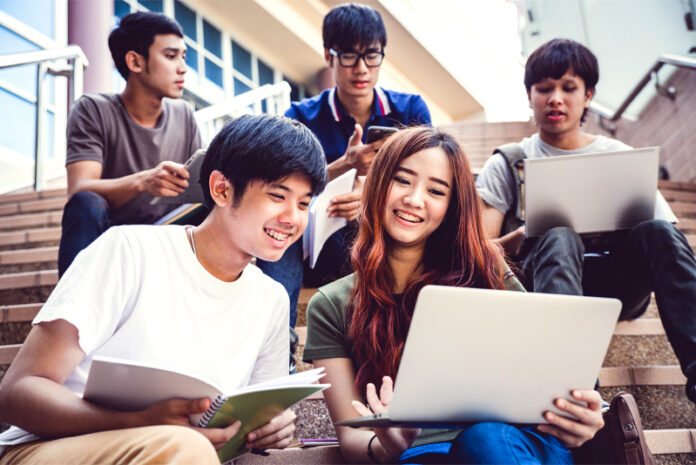The COVID-19 pandemic has created a challenging employment landscape, especially for fresh graduates and mid-career job seekers. A series of webinars on 11 and 12 August 2020 featuring speakers from Workforce Singapore (WSG), NUS Provost Office and NUS faculty, gave insights to opportunities available for fresh graduates and mid-career employees as well as for members to be part of.
The webinar series, held over the course of two days, shed some light on the initiatives that NUS and the government have in place to help fresh graduates and mid-career employees affected by the job hiring freeze brought about by the pandemic. Here are the highlights from the insightful sessions.
The NUS Resilience and Growth (R&G) Initiative 2020
Dr Sintia Teddy-Ang, Director for Strategic and Synergetic Programmes at the Office of the Senior Deputy President and Provost, was present for both webinars to give more information on the NUS R&G Initiative 2020. The initiative comprises four pillars: lifelong learning, job and traineeships, the Students Solidarity Fund, and the R&G Innovation Challenge.
Here’s what NUS alumni can benefit from the initiative
Lifelong learning: Four free CET modules for all fresh graduates
Job and traineeships: 200 jobs and 800 traineeships for graduates from the classes of 2019 and 2020; to date, 83 have been hired and 410 have started traineeship
Students Solidarity Fund: Which aims to raise $5 million to support 1,500 students
NUS R&G Innovation Challenge: $6 million grants for 115 projects involving around 600 graduates (in teams of 3-5).
The NUS R&G Innovation Challenge
The webinar “Creating and seizing opportunities in times of uncertainties” provided a great introduction to the recently-launched NUS R&G Innovation Challenge. The challenge, which is accepting submissions from 1 June to 31 December 2020, aims to encourage graduates, including NUSS members, to come up with innovative solutions to make our people, our society and the world better.
As explained by Dr Teddy-Ang, the NUS R&G Innovation Challenge will grant selected projects up to $50,000 per team for six months. Teams of three to five people can submit their proposals, and each team member who are graduates from the classes of 2020, 2019 and 2018 will also be allowed a stipend of up to $1,200 per month for the duration of the project. The initiative aims to fund 115 innovative projects – a homage to the University’s 115 years of history.
Under the challenge, the applicants can submit their proposals under one of three themes: “Make Our People Better”, “Make Our Society Better”, and “Make The World Better”, and will be evaluated by a panel comprising experts from NUS, and public and private sectors.

Make Our People Better
“The year 2020 is an extraordinary year for graduates,” remarked Prof Simon Chesterman, Dean of the Faculty of Law at NUS, citing the challenging economic climate that fresh graduates are currently facing. The Innovation Challenge is also encouraging the NUSS graduate community to have an impact and make a difference to the people, society and world. He shared some standout proposals they have received in the first wave of submissions which included an app to encourage the elderly to be physically active, ideas on making lifelong learning more meaningful, and how to improve home-based learning for kids doing science experiments at home.
Make Our Society Better
Prof Robbie Goh, Dean of the Faculty of Arts and Social Sciences at NUS, represented the second theme. “COVID-19 created new vulnerable groups that traditional social norms were not previously aware of.” He shared that their panel is looking for innovative ideas that can help vulnerable members of the community that can continue even after COVID-19 is over.
Make The World Better
According to Prof Phoon Kok Kwang, human activity is modifying the planet. He encouraged applicants to look at ideas that can make the world better for future generations and reminded everyone that no idea is too difficult if the intent is clear, “Even look at things that may seem impossible for you to make a difference in.”
The webinar concluded with a question and answer portion where panellists shared more about the NUS R&G Innovation Challenge requirements and submission criteria. For more information on the challenge, visit the NUS R&G Innovation Challenge website.
NUSS members may participate in NUS R&G Innovation Challenge by submitting a project, being a mentor, and/or sponsor a challenge. Please click here to indicate your interest.
SGUnited Jobs & Skills Package
The second webinar focused on government initiatives that aim to support up to 100,000 job seekers, expand job and traineeship opportunities and provide enhanced training support.
Mr Ashley Yap, Senior Manager, Manufacturing Division of Workforce Singapore (WSG) kicked off the webinar by sharing some insights on how COVID-19 has impacted the global economy. According to analysis done by McKinsey & Company, the Singapore government was able to react with rapid and effective control of the virus spread, and has introduced relatively effective economic policy responses.
He explained that although Singapore’s economy was more badly affected (due to a smaller domestic market) than other countries in the region, the country is set to recover at a similar pace in the region. “McKinsey & Company highlighted that Singapore should recover, or start to recover, by Q4 2020,” he added.
He went on to explain the SGUnited Jobs & Skills Package in greater detail, breaking down how the three pillars—job opportunities, traineeships, and training support. According to Mr Yap, these initiatives provide active job seekers avenues to embark on a new career, take up traineeship opportunities, or using this period to reskill themselves to prepare for the recovery.
For more information on the SGUnited Jobs & Skills Package, click here.







